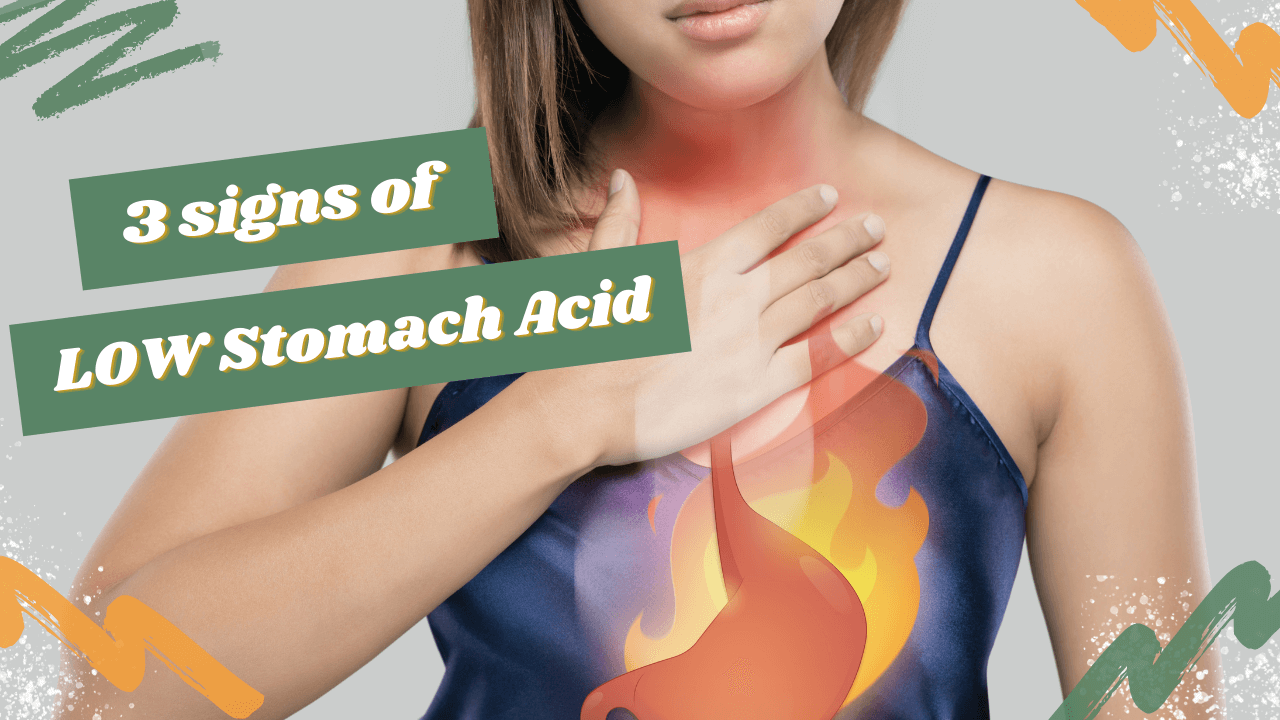
Do you find that you don’t feel well after eating – especially a meal with a lot of protein? Do you feel gassy, bloated, have constipation, feel heavy, or do you see undigested food in your stools?
Do you feel full for a long time after a normal meal? If it feels like your food just sits and stews for a long time – often leading to belching, bad breath, or other signs of fermentation in your stomach.
Do you deal with heartburn, GERD, indigestion, or other upper GI issues frequently?
Check out this video:
Why does low stomach acid happen?
- Medications, including overuse of antacids and pain relievers – can prevent the production and release of acid
- High carbohydrate intake – can cause inflammation, high insulin load, and change the environment of the gut
- High refined food intake – can cause inflammation and changes the environment of the gut
- Digestive enzyme deficiencies – prevents the proper breakdown of foods
- Leaky gut – can allow unintended particles to enter the bloodstream and cause inflammation
- Imbalanced microbial profile in the gut – can change the environment of the gut
- High alcohol intake – can steal nutrients needed to produce and release stomach acid
- Gut infections – infections can change the pH or overall conditions of the digestive system
- Stress – we NEED to be in a calm, relaxed state to digest our food well
- Eating too fast – if we fill up before the body has a chance to adjust, we get behind on secreting acids
If any of these sound like you – the great news is low stomach acid can be remedied naturally once we identify WHY you have low stomach acid. As a holistic nutrition professional, I focus on getting to the root cause, so we can remove the interference and get on with healing as quickly and efficiently as possible. This often requires the use of functional testing and nutritional supplements to help the body rebalance.





















0 Comments